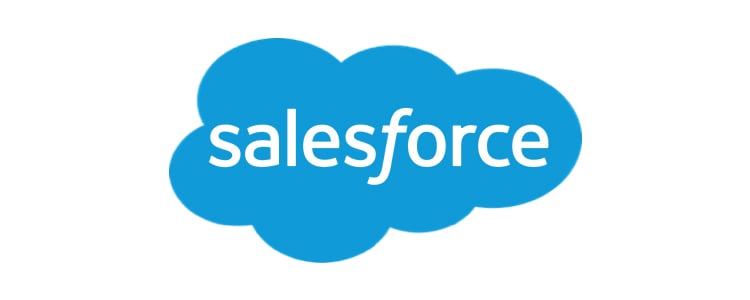Modernize your business and deliver projects faster with a CRM for construction
CRM for Construction Industry
Construction is a complex business–yet the industry still relies on paper records to get the job done. Data ends up scattered across construction plans, receipts, and spreadsheets. Worse still, all this information is either stuck in the office or risks ruin on the construction site.
A CRM for construction can modernize your business and give you the edge over your competitors. All company data is stored in a single intelligent system. You have a digital record of every project at hand, whether you’re in the field or office. This lets you complete projects faster, sell more effectively, and connect to clients anywhere.

Features specific to construction CRM
- Takeoff
Enhance the speed and precision of estimating processes by enabling estimators to measure physical paper blueprints or digital files like CAD drawings or PDFs using the construction CRM.
- Estimating
Use your construction CRM to calculate material and labor expenses based on your takeoff, then generate a comprehensive bid proposal using these calculations.
- Project management
Assist project managers in monitoring project expenditures, handling critical documentation, and fostering collaboration among all stakeholders engaged in a construction project within the construction CRM.
- Accounting and job costing
Manage the fundamental accounting and job costing requirements for contractors within the construction CRM. Job costing enables accounting personnel to allocate expenses on a per-project basis.
Best Construction CRMs

HubSpot, renowned for its marketing and sales automation prowess, may not be a specialized construction CRM, but it`s a chameleon-like platform that can be tailored to fit the unique needs of construction professionals.
4.9
Thryv, typically recognized for its all-in-one business management solutions, might not be the first name that comes to mind in the construction industry, but it`s a versatile platform that can be molded to meet the distinct needs of construction professionals.
4.4

Soffront CRM is a sophisticated platform that can serve everyone from small businesses to large franchise operators. Soffront CRM, a versatile platform not originally designed for construction, can be your uniquely tailored secret weapon in the construction industry.
3.9
Podio excels in lead generation, attracting potential clients to your construction business. Its powerful marketing automation tools nurture these leads, guiding them towards a commitment to your construction projects.
4.3
Sage CRM, known for its versatility across industries, may not be the first choice that comes to mind for construction, but it possesses unique qualities that can transform it into a powerful construction CRM.
3.5
What is construction CRM software?
From the bidding process through post-sale, a CRM construction solution may help you manage construction projects. It also reduces the need for on-the-ground visits and interventions. Keep track of several projects and track their development in real-time. Change orders quickly and ensure that everyone receives the same information for coordinated messaging.
Relationships are crucial to the construction industry and CRM for a small construction business is also very important. Clients frequently grant high-profile, expensive contracts depending on how well they know and trust a company. Every point of contact with a client will either strengthen or destroy that trust. That’s why it’s critical for client-facing employees to have a complete understanding of their company’s connection with a client.
The benefits of construction CRM
Streamline process
CRMs for construction are designed to make work processes more efficient. This includes all interactions with customers. Schedule appointments and provide customer service and support, for example.
Automation
CRM software for construction companies with great automation affects almost every part of the construction industry. Track sales, get a better understanding of relationships and create and conduct marketing initiatives. Also, keep track of the warranty process.
Better organization
Work orders, bids, sales, and customer information are all kept track of with CRM for construction. You may develop best practice repeatable procedures with a shared knowledge base. You can efficiently shift team members if you can identify locations that require attention.
Observe deadlines
Construction organizations can use construction CRM software to manage, schedule, and plan workflows. This ensures that deadlines are met to a large extent.
Opportunities for sale
As a sales tool, CRM construction services are extremely useful. They assist contractors in determining which customer type they are dealing with and what they are likely to be interested in.
Modernize your construction business
Put all your company data under one roof using a CRM for construction. The software system keeps information secure, connected, and transparent. All your systems and departments are integrated, allowing projects to move quickly from one stage to the next. With a CRM for construction, everybody can see the big picture.
A CRM can also automate routine tasks, such as construction bids and follow-up emails. This is significantly faster and more accurate than outdated manual processes.
Improve sales with a CRM for construction
When data is sprawled across your business, sales teams don’t have a complete picture of the customer. A CRM for construction can gather relevant information, like project history, contact history, and customer lifetime value (CLV). By knowing each account personally, sales reps can identify the most valuable accounts, as well as opportunities to upsell and cross-sell.
Better customer service
CRM for construction offers a complete 360-degree profile of each client. This ensures you never miss an important detail and customers never have to repeat themselves. While your competitors shuffle through papers, you can glance at the digital record to deliver smooth and efficient service.
Typical features of construction CRM system
Project management
Having a good project management CRM for construction business is important. A CRM solution lets you manage construction projects from the bidding process to post-sale.
Integration
Integration broadens the scope of a CRM’s functionality. Your CRM construction management software, for example, can be synchronised with Microsoft Outlook, Gmail, and Google G Suite. Customer data from common email and productivity apps may now be synced in real time with your CRM.
Data storage that is centralized
Construction companies can access their data from anywhere at any time thanks to centralized data storage. This eliminates data duplication, as well as job duplication as a result. Menial data entry is also significantly reduced.
Management of the sales pipeline
Sales pipeline tools track sales from the time an opportunity is identified to the time a deal is closed. Create custom flows for complex sales processes and visually track sales by stage. Step-by-step, engineer best-practice sales to generate consistent, long-term results.
Customization
Because no two construction companies are alike, CRM customization possibilities are available. Customizable features allow you to customize software to meet your individual company requirements.
Considerations when purchasing construction CRM software
7 things to look for when purchasing a CRM for a construction company:
- Network mapping
- Construction CRM system with a central database
- Industry-specific integrations
- Proposal and resume automation
- Hit rate-improving analytics
- Go/No Go functionality
- Mobile functionality
CRM for construction companies trends
Companies that are successfully adapted. Those who don’t keep up lose ground and are left behind. Long-term, aligning your strategy with new trends will yield beneficial results. To summarize, the construction industry’s tendencies are as follows: Social Media Usage for Business
Questions to ask a vendor when buying best construction CRM
- What are the software’s sales management capabilities?
- What integrations will it have with my marketing automation platform?
- Can you show me how to use the customer database?
- Tell me about the activity management in the CRM for the construction industry.
- What kinds of reports does the CRM for construction provide?
FAQs
What are the best construction CRMs?
YetiForce, Thryv, Flowlu, ActiveCampaign, SharpSpring, Method CRM, and Pipedrive are the best construction CRMs.
How to choose the right construction CRM?
You must also evaluate the vendors themselves, in addition to the various CRM capabilities. Choosing the best construction CRM software for your company will make the entire process of selecting and implementing a CRM much easier. Take into account:
- Function
- Cost
- Reputation
- Setup
- Integrations
- Cloud-based vs onsite
What are the key features of construction CRM?
Management of a project
From the bidding phase through post-sale, a CRM solution may help you manage construction projects.
Integration expands the scope of a CRM’s utility. Your construction management software, for example, can be synced with Microsoft Outlook, Gmail, and Google G Suite.
Data storage that is centralized
Construction companies can access their data from anywhere at any time thanks to centralized data storage.
Management of the sales pipeline
Sales pipeline tools track sales from the time an opportunity is identified to the time a deal is finalized. Create bespoke flows for complex sales processes and visually track sales by stage.
Customization
Because no two construction companies are alike, CRM customization possibilities are available. Customizable features allow you to customize software to meet your individual company requirements.
Why should you use construction CRM software?
Improved client interactions are the most basic benefit. CRM enables sales teams to have more effective client relationships. Greater deals closed, more loyalty, and more word-of-mouth referrals mean a better customer experience.
CRMs promise improved organization and communication in the business world.
Project management tools are available in CRMs. Your contacts, bids, and invoices are all kept on file. They allow you to manage groups. Your working connections with architects, engineers, and other project stakeholders are also important.
All of your work procedures will be streamlined with CRM. To create a “single source of truth,” gather all of your data in one place. Automate and analyze your email marketing campaigns to make them more effective.
What is a construction CRM?
Construction CRM, and more specifically General Contractor CRM, is the system in which General Contractors manage their current and prospective clients that they build for.
Other CRM Industries
Higher Education
Attract, sustain, and serve your students with CRM for higher education
Insurance
Reduce risk and increase profits with CRM for Insurance
Consulting
Conduct business from your pocket, with a CRM for consultants
Manufacturing
Improve the planning, production scheduling, and communication with a manufacturing CRM.
Real Estate
Manage properties, buyers, and sellers on a unified platform with CRM for real estate.
eCommerce
Improve customer relationships and reach new markets with CRM for eCommerce.
Small Business
CRM is an inexpensive software solution to scale your business.
SaaS Companies
Reduce churn and attract more customers with a CRM for SaaS.
Nonprofits
Raise more money, motivate volunteers, and grow strategically with CRM for nonprofits.
Retail
Add a personal touch to every shopping experience with CRM for retail.
Healthcare Industry
Improve patient outcomes with a CRM for healthcare.






